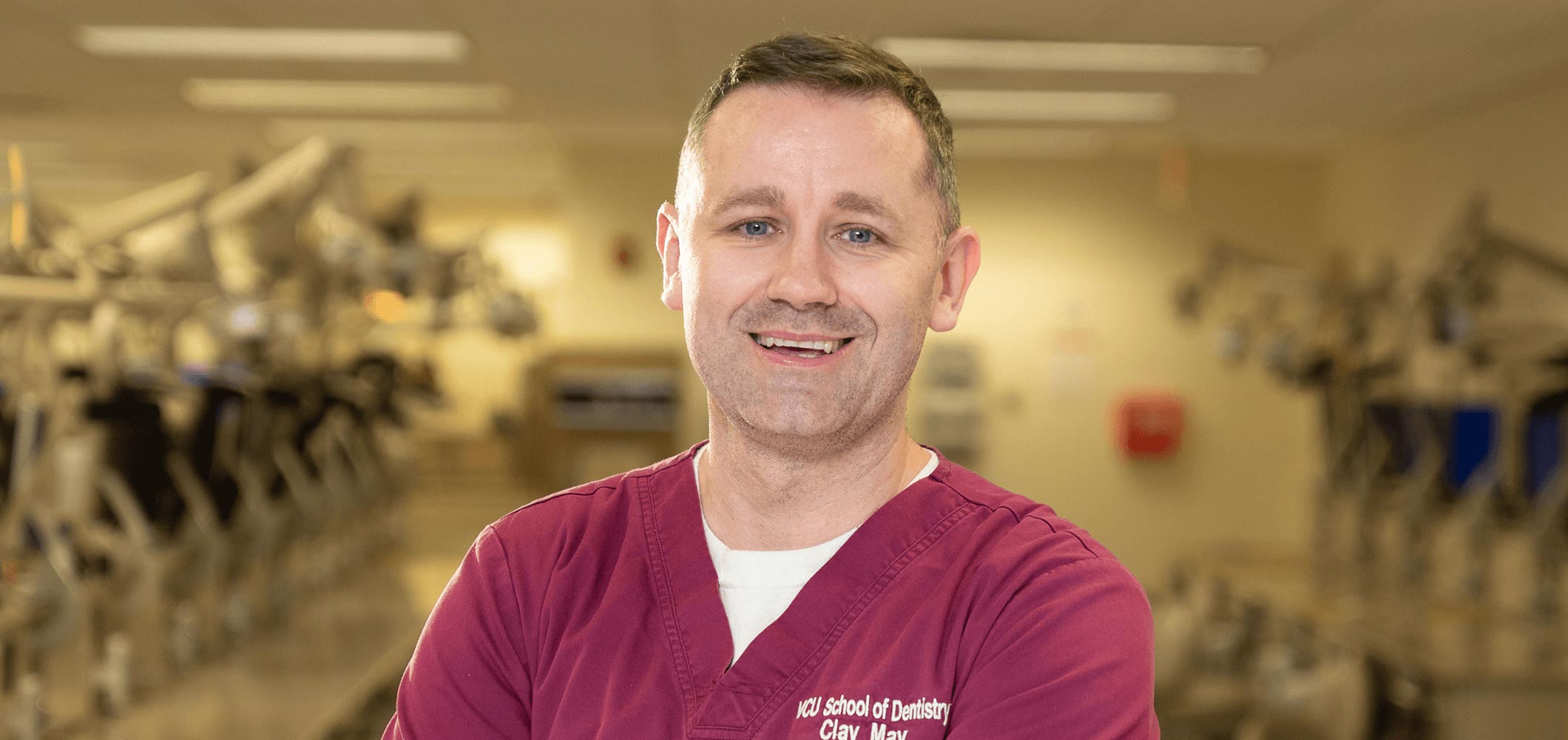Invest In Me
Handyman
Nontraditional dentistry student relies on grit, scholarships to change the course of his life — and that of others
Michael “Clay” May, D.D.S. (D.D.S.'20/D) came to the Virginia Commonwealth University School of Dentistry the long way around, via a theology undergraduate degree and 10 subsequent years traveling the world with religious nonprofits. When he started considering a change of direction, a friend made an unusual connection between his talents and the skills required for dentistry.
“He said, ‘Hey you are good with your hands — you play music, you work on cars, you build things — you should consider dentistry,’” May says. “Growing up really poor in rural Texas, I hardly knew anything about dentistry.”
May shadowed a few dentists and began a roughly four-year process of getting the qualifications required to embark on a postgraduate dentistry degree.
“I was working as a construction contractor — roofing houses, doing electrical work, plumbing, cabinets, literally anything — just kind of hustling to survive and pay for these classes I needed to take,” May says.
May had paid for his undergraduate degree with a mix of scholarships and loans, but it wasn’t until this point that he realized just how different his path had been. “When you’re coming from disadvantage and carrying this financial weight, it’s hard to study,” May says. “It’s hard to focus when you’re worried about your life, or about your phone bill or whatever. And I’m sitting in class next to people whose only thing they have to do is just go to school and study. That made the disparity in education access really evident for me.”
At VCU, May is thriving. Now in his fourth year, he has 650 dental extractions under his belt, beating the previous school record of 312. He has won the trust and respect of fellow students and faculty. He believes his humble beginnings and nonprofit background have given him a powerful empathy with his patients. And he is the recipient of several scholarships, including the Frank Walker Scholarship, that have helped lighten his financial strain.
“Obviously I’m still taking loans, but the scholarships relieve a little of that anxiety, because when I graduate, I’ll have a lower amount to pay back than I would have done,” May says. “But also, they are like an acknowledgment — that, ‘Hey, you worked hard and you deserve to be here so much that we’re going to actually contribute to that education.’”
May graduated in spring 2020 and hopes to combine his passions for dentistry, philanthropy and travel to improve health outcomes in underserved communities. And he’s realized his friend was right all along: “I'm telling you, if you can hang drywall or do crown molding, you can put a filling in a tooth.”
